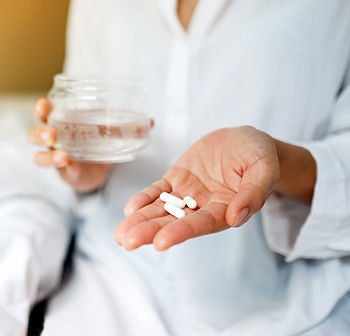
To recover from Chikungunya, stay hydrated, manage your symptoms, and rest and eat well.
Like dengue fever, Chikungunya is spread by the bite of infected Aedes mosquitoes.
There are no specific medications or antivirals to treat Chikungunya so treatment is directed towards the relief of symptoms.
“Similar to patients who contract dengue fever, those who come down with Chikungunya are generally advised to get ample rest and drink plenty of fluids to avoid dehydration. Paracetamol can also be taken for the fever and to reduce joint pains.
However, unlike dengue fever where the taking of NSAIDS (nonsteroidal anti-inflammatory drugs) such as naproxen, ibuprofen) and aspirin are not recommended, for Chikungunya, they (NSAIDS and aspirin) are recommended for significant joint pain and swellings,” explained Dr Pushpalatha, Senior Consultant from the Department of Infectious Disease at Sengkang General Hospital (SKH), a member of the SingHealth group.
“In terms of recovery duration, Chikungunya patients tend to take longer to recover compared to dengue fever. Although not as life-threatening as dengue fever, some may experience prolonged joint pain and swelling for up to a year or longer,” she added.
Symptoms of Chikungunya
Chikungunya shares symptoms similar to dengue fever including:
- Fever (which can last up to 7 days)
- Intense headache with pain behind the eyes
- Body aches and joint pain
- Rashes
- Loss of appetite
- Nausea and vomiting
For symptoms where Chikungunya differs from dengue fever, patients with Chikungunya have been known to experience:
- Significant multiple joint pain and joint swelling
- Generalised rashes (spread across the body). Rashes from dengue, on the other hand, usually start as patchy, localised (mild erythematous) rashes but may progress to generalised rashes.
Diagnosis for Chikungunya
It is possible to differentiate Chikungunya from dengue based on signs and symptoms.
“However, as dual infections are possible since both are transmitted by infected Aedes mosquitoes. Diagnostic confirmation by laboratory test is recommended,” Dr Pushpalatha said.
What to do to recover from Chikungunya
1. Stay hydrated
Drink plenty of fluids (water, isotonic drinks, fruit juices and soup) to maintain hydration. Avoid tea, coffee, alcohol and soft drinks with high sugar content which may cause dehydration.
If you are unable to drink due to nausea or vomiting, fluids may be given intravenously by drip.
2. Manage your symptoms well
Take paracetamol to keep fever and joint pain under control. Medications may also be prescribed for nausea, vomiting and if there are itchy rashes. Rashes usually resolve on its own over two to three weeks.
3. Eat well
Although there are no specific foods to eat or avoid when a person is down with Chikungunya, as with any illness, it is best to avoid raw, greasy or fat, spicy foods. Instead, light and easy-to-digest food are recommended.
4. Consult a specialist
Persisting joint pains and joint swellings for more than 3 months will require referral to specialist rheumatologist for evaluation and further management with disease-modifying antirheumatic drugs (DMARD) therapy.
When to see a doctor immediately
Please see a doctor immediately If you experience any of the following symptoms:
- Severe abdominal pain
- Persistent vomiting
- Vomiting blood
- Black and tarry stools
- Bleeding from the nose or gums
- Drowsiness or irritability
- Pale, cold, or clammy (sweaty) skin
- Difficulty breathing
If I’ve gotten Chikungunya before, can I get it again?
“Based on outbreak studies it has been noted that patients with Chikungunya don’t contract it again. After recovery, they usually develop a lifelong immunity to it,” Dr Pushpalatha said.
“However, for dengue fever, it’s different. There are four strains of the dengue virus: DEN-1, DEN-2, DEN-3 and DEN-4. Even if you recover from one strain and build immunity against it, you can still contract dengue fever from the other strains,” she added.
Prevention is your best protection. So be vigilant when it comes to preventing the breeding and staying protected from Aedes mosquitos.
Ref: G25
Related articles:
Dengue Fever: How to Recover Fast












.png)





 Get it on Google Play
Get it on Google Play